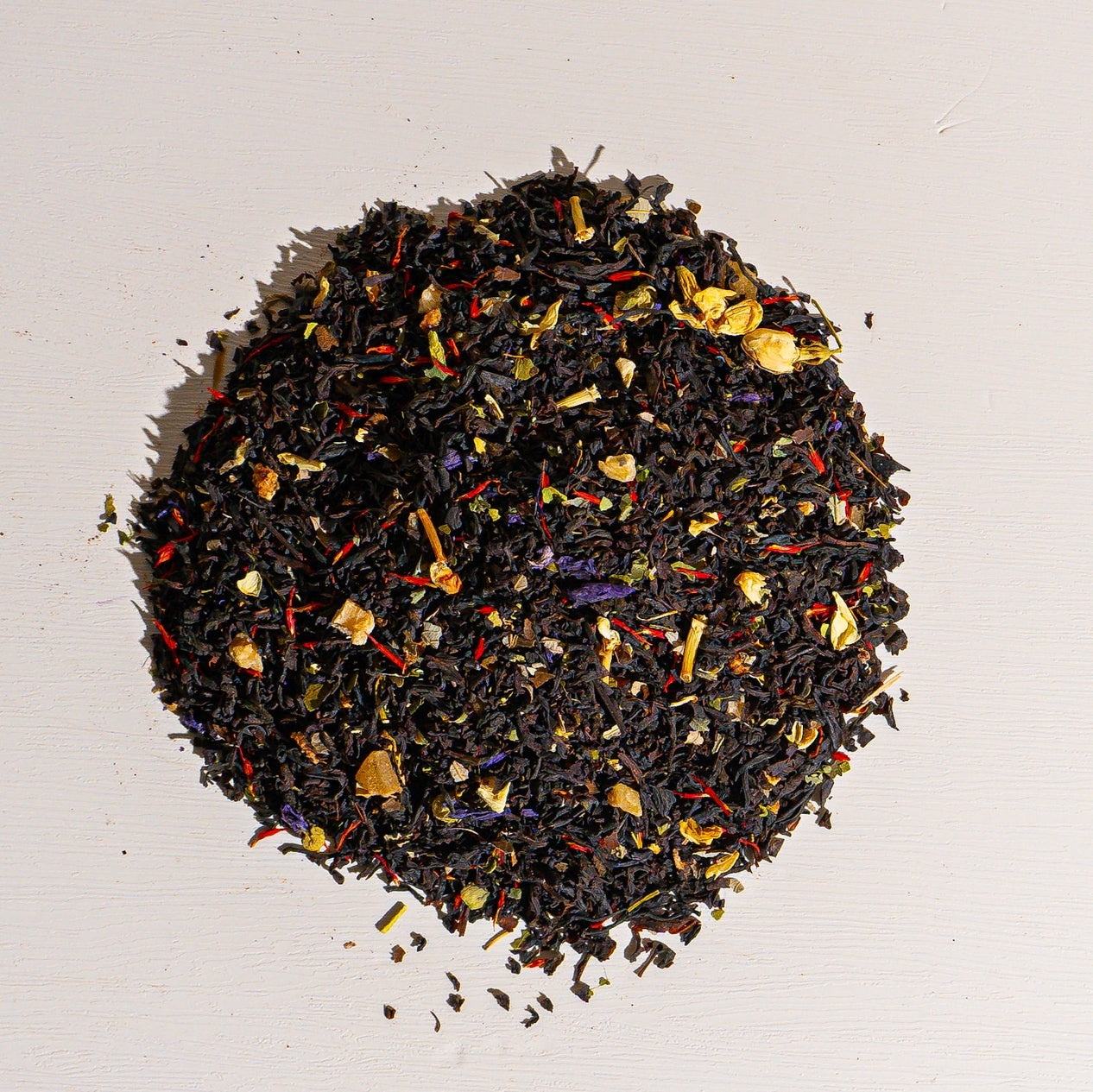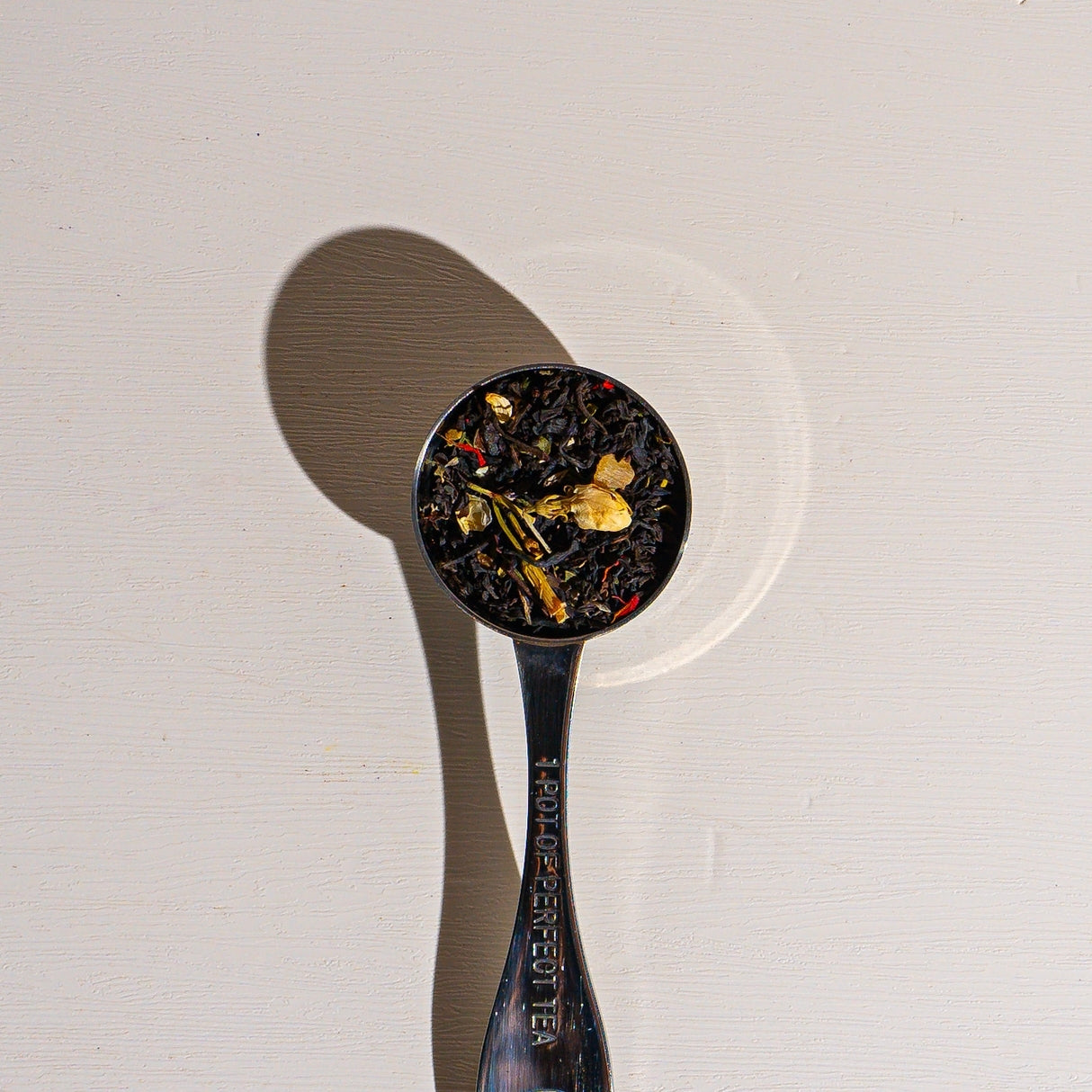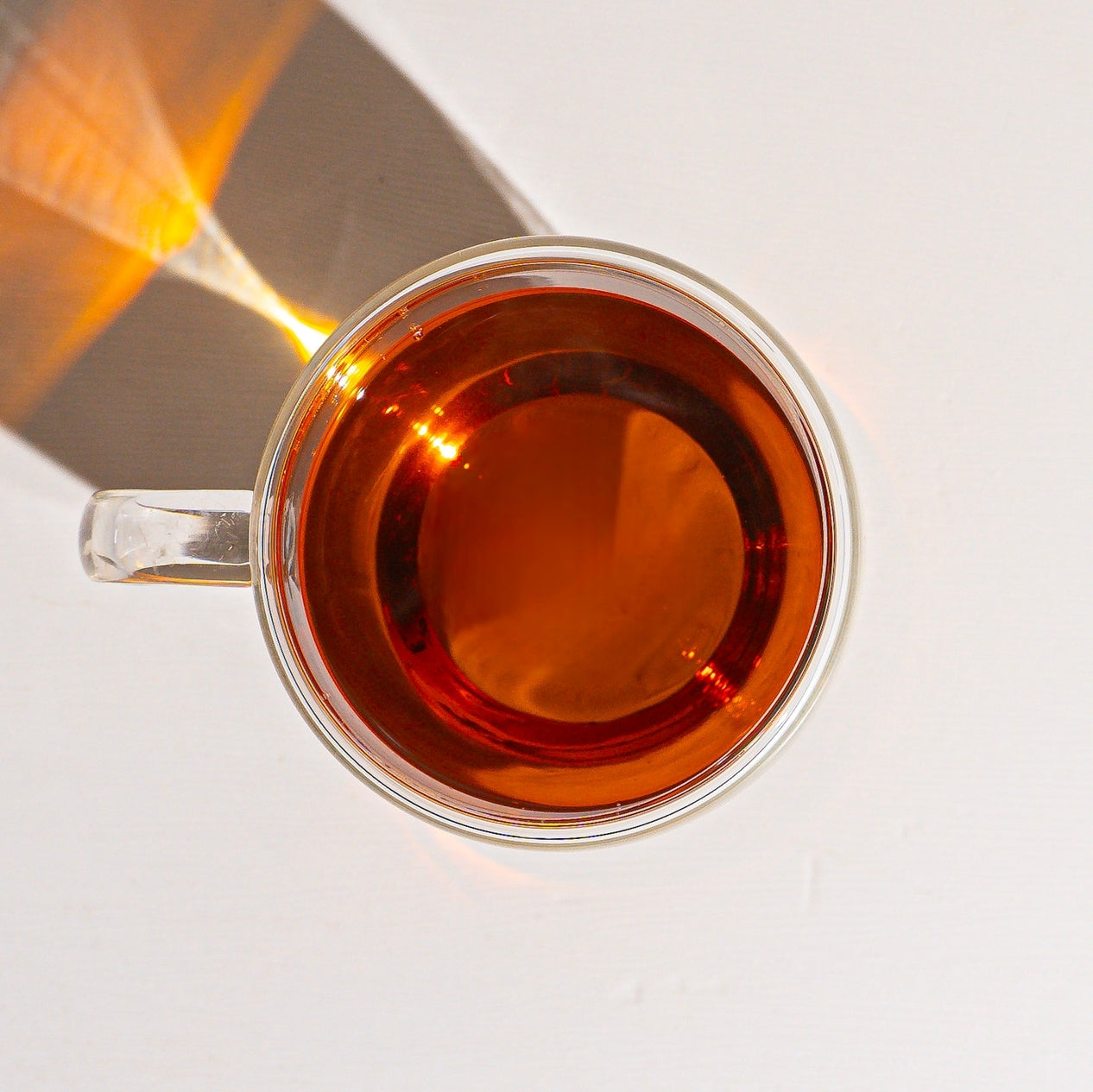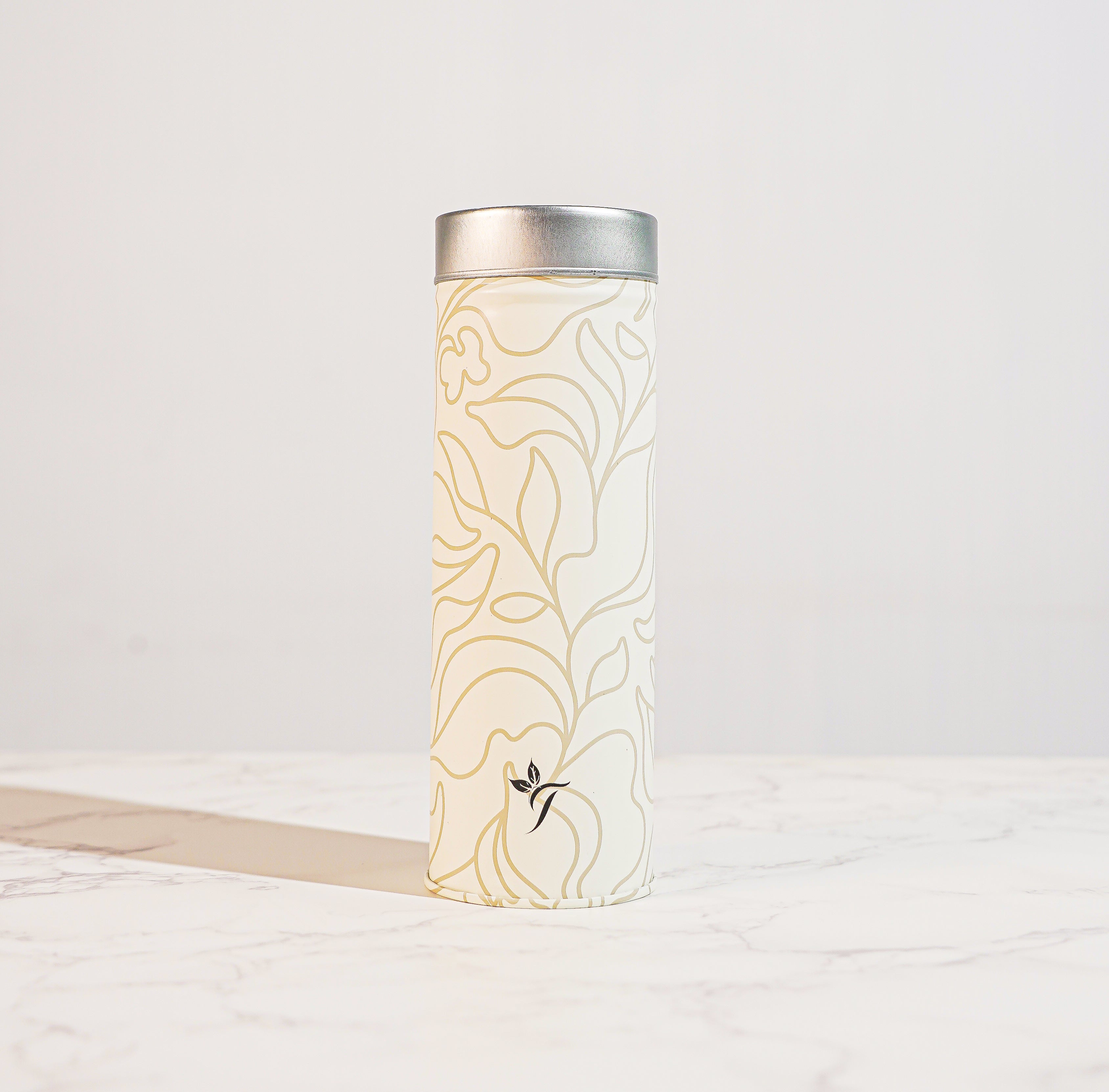Plum Tea
This blend has a fresh and slightly acidic plum flavor that beautifully compliments its astringent Ceylon base. Brew it hot with a dash of milk to help open up plum's subtle nuances.
Taste Notes: Sweet, tangy, juicy
Luxury Ingredients: Black tea, Pineapple, pear pieces, Safflower, Mallow, Jasmine petals, Blackberry, Lime leaves, Natural flavors (organic compliant).
Origin: Sri Lanka / Kenya / India / Thailand / China / Albania / France
Made with all natural, organic-certified flavorings.
This tea supports the Ethical Tea Partnership
All Camellia sinensis in our blends contributes to a fairer, more sustainable tea industry.
CAFFEINE CONTENT | HIGH
Cup per oz
10-12 cups per 1 oz
Couldn't load pickup availability
 1-2
1-2



 4-6 mins
4-6 mins
 1-2
1-2

 205-212°F
In 475 ml (8oz)
205-212°F
In 475 ml (8oz)

 4-6 mins
4-6 mins




The most wonderful tea I’ve wver had!
I always love your products. They ship fast and are great quality!
I had heard that plum tea helps with migraines. So I originally bought it for that. I love the flavor and can attest to it helping with my migraines when the weather or pressure changes occur. I am not sure if all black teas do that but I'll keep buying the plum tea, for the flavor as well as the help it brings, just in case:).
I've been looking for a plum tea for a while. This tea exactly hit the spot - nice plum flavor without being sticky sweet.
Soooooooooo great Iced!





